
Dr. Steven Vasilev
Dr. Steven Vasilev MD, MBA FACOG FACS FACN ABIHM ABOIM
Dr Steven Vasilev – Endometriosis Specialist, Oncology & Minimally Invasive Robotic Surgery| Medical Director, GO Institute.
Summary: Dr Steven Vasilev is a highly respected endometriosis specialist serving patients in Santa Monica, Beverly Hills, and San Luis Obispo. With over 30 years of experience, Dr Vasilev is known for his expertise in complex gynecologic surgery, including minimally invasive and robotic techniques. Steven Vasilev MD is the only physician in the U.S. triple board-certified in OB-GYN, oncology, and integrative medicine—bringing a comprehensive, personalized approach to each patient’s care.
Patients who choose Dr Steven Vasilev benefit from a philosophy that combines precision excision surgery with holistic healing strategies. From preoperative imaging to pelvic floor therapy and integrative recovery plans, Dr Vasilev offers thoughtful, multidisciplinary care tailored to long-term wellness. Steven Vasilev MD is not only a skilled surgeon but also a compassionate listener dedicated to improving outcomes for those living with endometriosis.
City: Santa Monica, Beverly Hills & San Luis Obispo, CA, USA.
Please watch the short informative video in the upper left corner of this profile.
Philosophy:
In addition to being a doctor and surgeon, I am a clinical researcher and translational scientist. We are studying the molecular behavior of endometriosis in our laboratories. Endometriosis theories suggest multiple causes, and each thesis
contributes to factors likely tied together at the molecular genetic level. Identification of endometriosis molecular and immunomodulatory pathway biomarkers will soon lead to better non-invasive diagnostics, accurate monitoring, and effective therapies beyond the baseline of expert excisional surgery and hormonal manipulation. I focus on this and the uncommon but clear overlap with malignancy in older endo patients or those with a family history.
Surgical excision is a critical cornerstone for endo diagnosis, initial treatment, and re-excision of recurrence or pain-producing fibrosis. My philosophy is to be fully informed and prepared, no matter the findings, through optimal preoperative imaging and testing. Fortunately, my unique training and board certifications permit surgery on all abdominal or pelvic organs, including small and large bowel, ureters, bladder, liver, and diaphragm. If disease is suspected beyond these organs, such as the chest, we have expert cardiothoracic and neurosurgeons ready to join a multidisciplinary surgery. Having used both laparoscopy and robotics in thousands of surgeries over three decades, including the hardest of the complicated surgeries, I firmly believe that the far superior 3-D camera optics and articulating or wristed “tiny hands” instruments used in robotics are better than traditional laparoscopy for all but the simplest of cases. When complicated anatomy or scarring from endo and fibrosis is unexpectedly found, which is not uncommon because endo is intensely inflammatory, the ability to see better and use finesse instruments makes all the difference, especially in highly experienced hands.
Medication:
During the perioperative period, we use holistic ERAS-modified care, combined with integrative modalities such as acupuncture and acupressure, to allow faster recovery with lower narcotic use. We individually construct and coordinate a multidisciplinary consulting team of experts to manage pain, intestinal manifestations such as SIBO and pelvic floor dysfunction. We work with referring gynecologists regarding hormonal support but discourage using GnRH-based therapies. My board certification in Integrative Medicine uniquely injects additional options involving holistic care. An example is proactive estrobolome management to lower systemic estrogen levels naturally.
Approach to Persistent Pain:
Both pre- and post-operatively, I strongly encourage pelvic floor therapy and pain specialist consultation and follow-up. The genesis of endo-induced pain can be due to endometriosis implants and peripheral visceral and parietal peritoneal nociception, fibrosis, direct nerve impingement, pelvic floor dysesthesia, or central sensitization. A very individual approach is vital to the best management plan. In primary and persistent pain situations, each of these “medicalese” terms is discussed in detail to craft the best possible personalized plan. Finally, as noted above, I am a board-certified integrative medicine practitioner and thus apply Eastern thought such as acupuncture, mind-body strategies, and personal nutritional counseling and interventions.
Dr. Steve’s Articles:
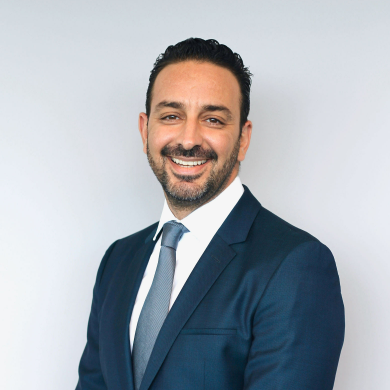
Dr. Nadim Hawa
Dr. Nadim Hawa, M.D.
Dr Nadim Hawa – Endometriosis Specialist, Minimally Invasive Gynecologic Surgeon
Summary: Dr Nadim Hawa is an experienced endometriosis specialist and minimally invasive gynecologic surgeon based in Leesburg, VA. Known for his compassionate and individualized care, Dr. Hawa is committed to helping patients find lasting relief from endometriosis. Whether you’re searching for Dr Hawa OBGYN or learning more about Dr Hawa endometriosis expertise, his approach combines surgical precision with long-term support.
Dr Hawa believes endometriosis has diverse origins, which is why he tailors treatment plans to each patient’s specific condition. While medications may ease symptoms, he emphasizes that they don’t address the root of the disease. Instead, he focuses on complete excision surgery and often integrates pelvic floor therapy to improve outcomes. As both a skilled surgeon and dedicated partner in care, Dr Nadim Hawa offers a comprehensive approach to managing endometriosis with the goal of restoring quality of life.
City: Leesburg, VA, USA
Philosophy: Multiple factors. Combination of in Sito development and endometrial transplantation. I do not believe there is only one type of endometriosis. Different origins hence different differentiation, behavior, and clinical impact. Same as fibroid. Why you have one solitary fibroid vs the bag of marbles of a uterus. Different gene expression and different behavior.
Medication: Medication and hormonal suppression serve only to relieve symptoms but not treat the disease. By stopping the dynamic motion of the uterus with suppression, you limit the superficial peritoneal inflammation and cause symptomatic relief, but you will not affect the deep lesions. since they produce their own estrogen and pro-inflammatory mediators. .I use IUD and usually insert intraoperatively after the excision surgery if the patient e desires birth control. GnRH agonist/antagonist are harmful and I do not use them
Approach to Persistent Pain: Surgery alone is not enough. Pelvic floor therapy is as important as surgery, for long term recovery.
A second excision is usually advised.
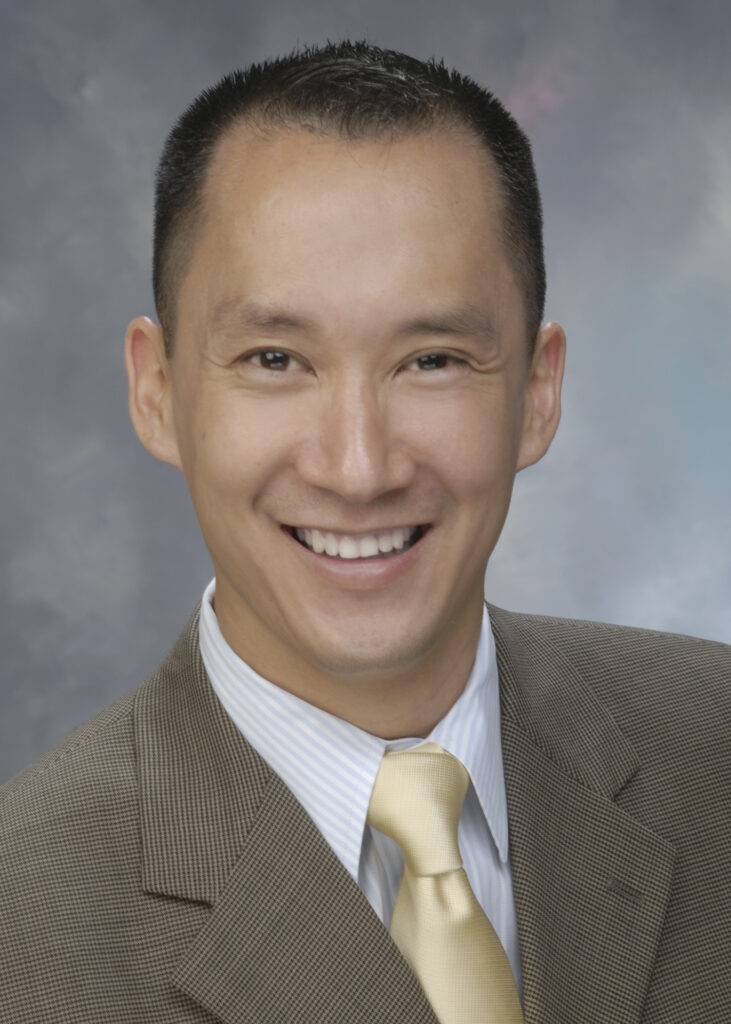
Dr. Patrick Yeung Jr
Dr Patrick Yeung Jr, M.D.
Dr Patrick Yeung – Endometriosis Specialist, Minimally Invasive Gynecologic Surgeon
Summary: Dr Patrick Yeung is a renowned endometriosis specialist and minimally invasive gynecologic surgeon based in St. Louis. Known for his deep commitment to individualized care, Dr Patrick Yeung takes a comprehensive and evidence-based approach to treating endometriosis. Patients seeking answers about complex pelvic pain or surgery often find lasting relief through his expertise. Whether you’re researching Dr Patrick Yeung St Louis, exploring options for Patrick Young endometriosis treatment, or looking for the right specialist, Dr Yeung offers trusted, compassionate care.
With a philosophy rooted in achieving optimal excision over hormonal suppression, Dr Yeung believes real healing begins by treating the disease at its core—not just its symptoms. As a thought leader challenging outdated theories like retrograde menstruation, Dr Patrick Yeung focuses on precision surgery and comprehensive post-op support. Patients nationwide turn to Dr Patrick Yeung St Louis for relief from persistent endometriosis pain and personalized, long-term care.
City: St. Louis, MO, USA
Philosophy: Metaplasia or maybe stem cells. I agree with Dr. Redwine that the retrograde menstruation theory is probably one of the most problematic areas in our understanding of endometriosis and leads people to make statements or hold ideas that just biologically are not true (like hysterectomy or inducing amenorrhea will somehow treat endometriosis).
Medication: I rarely, if ever, use or recommend hormonal suppression, which at best is symptomatic relief; I think that hormonal suppression does nothing to the actual disease (it certainly does not dissolve it or get rid of it), has not been shown or proven to prevent progression, does NOT help (later) fertility, and can have serious side effects.
I do NOT recommend postoperative hormonal suppression to prevent progression or recurrence if I think that optimal excision has been achieved. So I am committed to achieving optimal excision at the time of surgery.
Approach to Persistent Pain: If a patient has had optimal excision, then endometriosis as a source of pain should be at the bottom of the list of potential symptoms, though not off the list. Other sources of pain should be investigated first before revisiting the issue of endometriosis-associated pain or at least in thinking that another surgery would be helpful. The uterus itself could also be a source of pain.
Since incorporating a more global or comprehensive approach to pain, our rate of repeat surgery for endometriosis has gone from 40% to 6%.
If surgery is to be repeated, I like to try to do something different than what was done the first time, in the hopes of a different outcome.
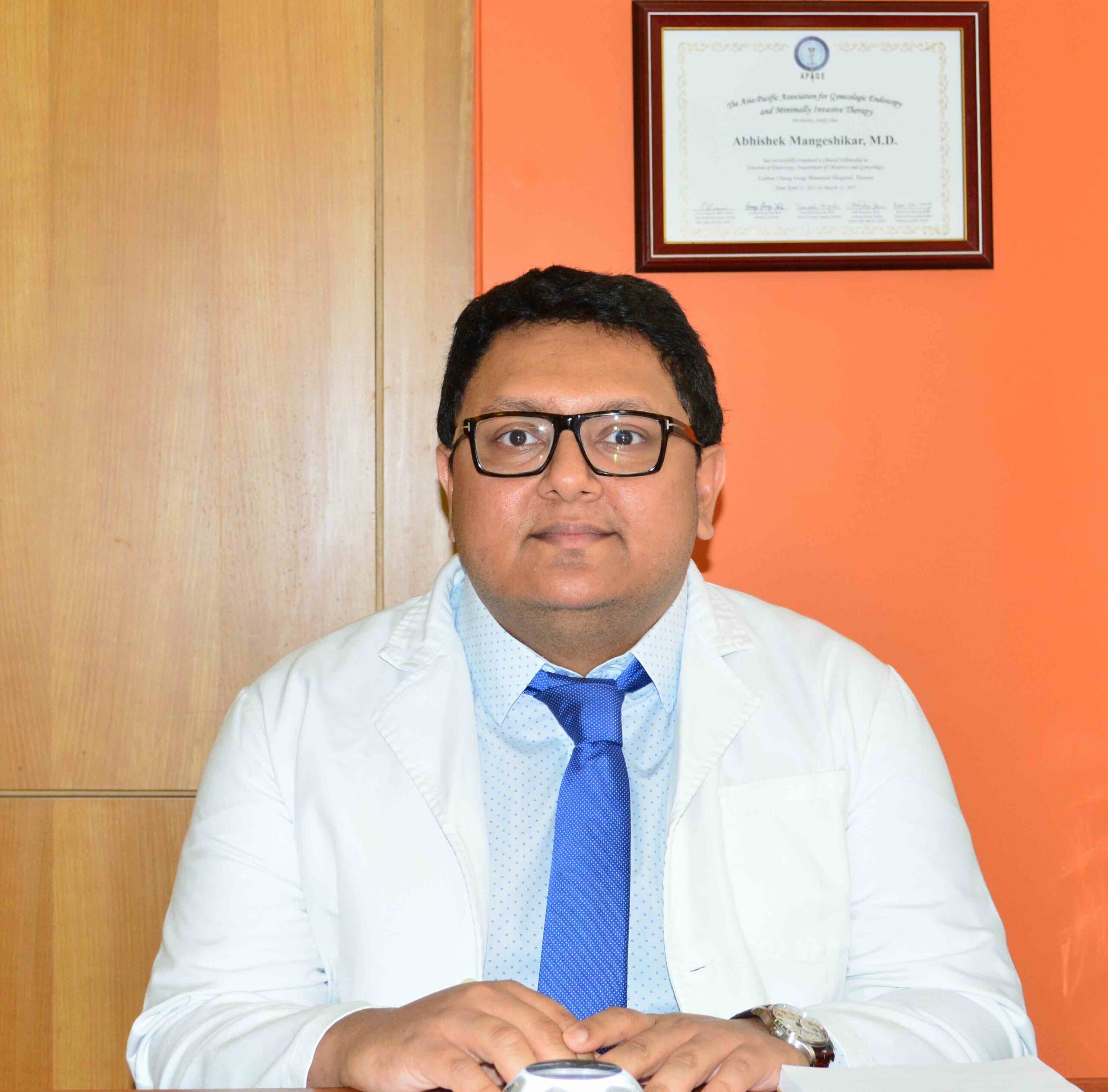
Dr. Abhishek Mangeshikar
Abhishek Mangeshikar, M.D., Endometriosis Specialist, Minimally Invasive Gynecologic Surgeon.
City: Mumbai, Maharashtra, India.
Philosophy: A combination of mulleriosis and the genetic – epigenetic theory. During embryo formation and separation of the Mullerian system, abnormal cells are laid down which during certain “epigenetic” events like hormonal changes at menarche trigger activation of these abnormal cells.
Medication: Postoperatively: 3-6 months of OC pills or Dienogest, Mirena (LNG IUD) in cases of adenomyosis.
Tailored pain regimens for patients with chronic pain managed by our pain specialist usually with Gabapentin, Lyrica, NSAIDs or Narcotics
In case a patient has to wait for surgery we may preoperatively suggest OC pills or Dienogest.
Approach to Persistent Pain: Patients are routinely followed up at 6 months, 12 months, and yearly after that with quality of life questionnaires regarding pain scores, fertility outcomes, gastrointestinal complaints, etc. Chronic pain caused by a certain degree of central sensitization is managed by our pain specialist. Nutrition and pelvic floor physiotherapy form an important part of the recovery process. Recurrence rates are less than 10 % over 5 years for deep endometriosis lesions, for endometriomas less than 20%. These cases would require another surgical intervention.

Dr. Lora Liu
Dr. Lora Liu, M.D.
Dr Lora Liu – Endometriosis Specialist, Minimally Invasive Gynecologic Surgeon.
Summary: Dr Lora Liu, a highly respected endometriosis specialist and minimally invasive gynecologic surgeon, is based in New York City. Known for her skill and compassionate care, Dr Liu NYC is a trusted name among patients seeking expert treatment for complex pelvic pain. At the core of Dr Liu Endometriosis care is a comprehensive understanding of the disease’s multifactorial origins, including inflammation, immune dysfunction, and hormonal influences. Patients turn to Lora Liu MD for individualized care that blends evidence-based medicine with a human-centered approach.
Dr Lora Liu believes in treating each patient uniquely. She often combines advanced excision surgery with hormonal therapy, non-opioid pain relief, and pelvic floor rehabilitation. At Dr Liu NYC, her multidisciplinary team supports long-term healing, even for those with persistent symptoms. Dr Liu Endometriosis care reflects a deep commitment to improving quality of life, and Lora Liu MD remains a leading voice in delivering compassionate, specialized care for women with endometriosis.
City: New York, NY, USA.
Philosophy: I believe that the etiology of endometriosis is complex and multifactorial. I support the Mullerianosis theory. However, there are other contributing factors such as oxidative stress and inflammation, impaired immune response, genetics, and hormones – both endogenous and exogenous that play a role in the pathogenesis and proliferation of endometriosis.
Medication: I incorporate medications into my practice for the management of symptoms. For hormonal suppression, I incorporate combined OCPs, progesterone-only pills, or progesterone IUD. I do not prescribe GnRH agonists or antagonists. Depending on the patient’s pain generators, I may also recommend non-opioid pain medication, such as NSAIDs, gabapentin, SNRIs, and compounded suppositories.
Approach to Persistent Pain: I am committed to closely following my post-operative patients to ensure that their persistent pain is managed and overall quality of life is improved. Patients with a long history of pelvic pain due to endometriosis will often require additional support following surgery. I am fortunate to work in a multi-disciplinary practice with Physical Medicine and Rehabilitation physicians who specialize in pelvic pain, as well as with pelvic floor physical therapists and pain management physicians. However, my approach depends on the individual patient and her history and current symptoms. Some patients may find that their symptoms are adequately managed with hormonal suppression alone, whereas others may need a second look if symptoms start to recur after their initial surgery. By integrating a multifaceted approach, I find that patient outcomes are overwhelmingly more positive.
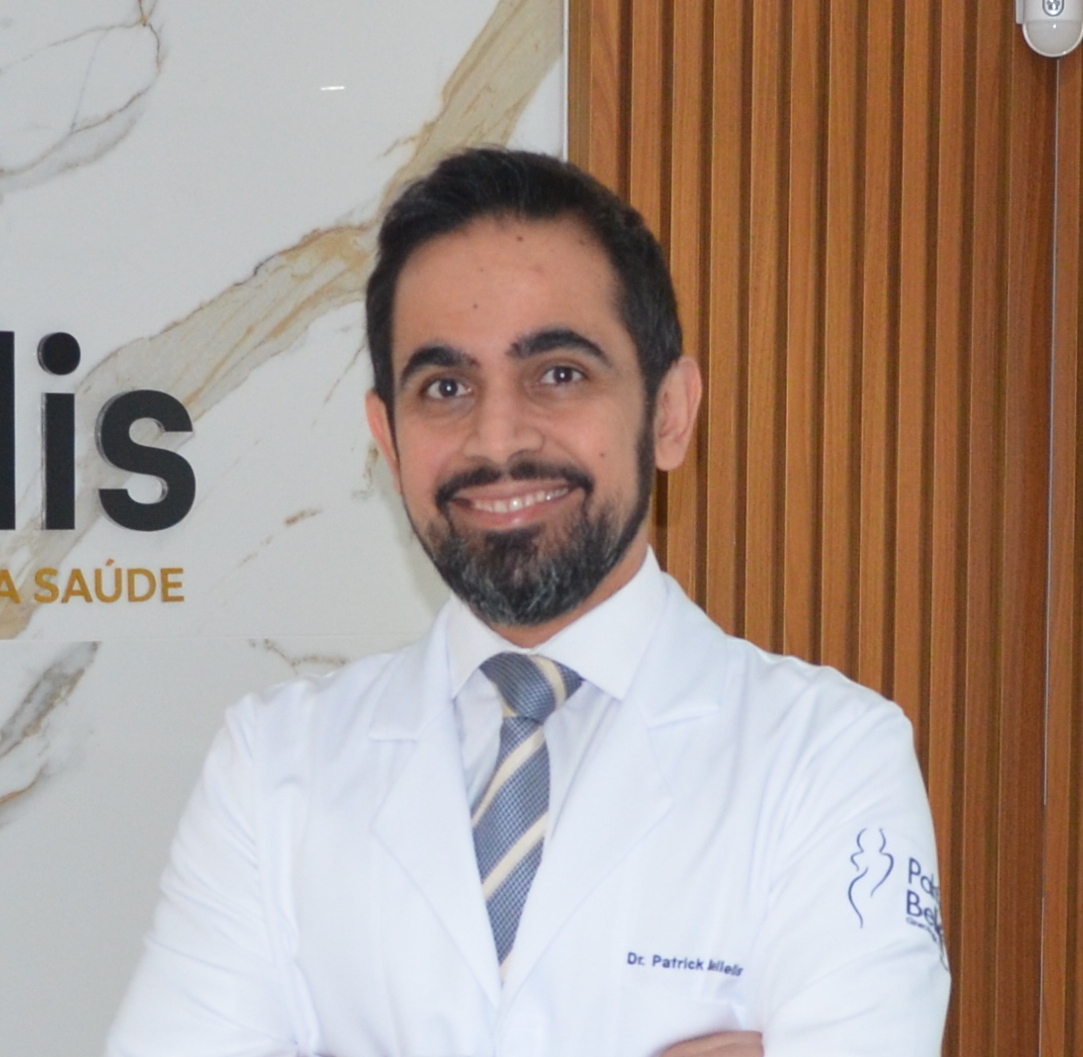
Dr. Patrick Bellelis
Patrick Bellelis, M.D., Endometriosis Specialist, Minimally Invasive Gynecologic Surgeon.
City: São Paulo, Brazil.
Philosophy: Genetics and epigenetics
Medication: Oral contraceptive pills for symptom control
Approach to Persistent Pain: Evaluate other causes of pain and associate them with pelvic physiotherapy and adequate diet
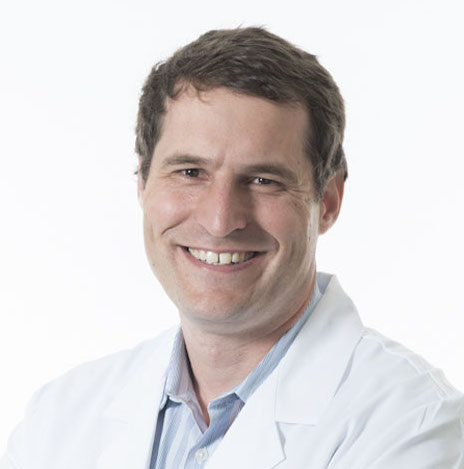
Dr. Nicholas Fogelson
Nicholas Fogelson, M.D., FACOG,
Dr Nicholas Fogelson – Endometriosis Specialist, Advanced Pelvic Surgeon, Minimally Invasive Gynecologic Surgeon.
Summary: Dr Fogelson is a leading endometriosis specialist and advanced pelvic surgeon based in Portland, Oregon. Patients from across the country trust Dr Nicholas Fogelson and his clinic, Northwest Endometriosis, also known as NW Endometriosis, for expert, compassionate care. With a strong foundation in the latest research, Dr Fogelson approaches each case with precision and empathy, offering tailored treatments that prioritize long-term relief. Thanks to his reputation for surgical excellence and individualized care, NW Endometriosis has become a top destination for patients seeking advanced support for this complex condition.
At Northwest Endometriosis, Dr Nicholas Fogelson provides excision surgery backed by a deep understanding of the varied presentations of endometriosis. His treatment plans often include pelvic floor therapy, lifestyle guidance, and selective use of hormonal therapy. Whether patients are local or traveling for care, Dr Fogelson and the NW Endometriosis team are committed to delivering ongoing support and expertise every step of the way.
City: Portland, Oregon.
Philosophy: I strongly believe that endometriosis is not one disease, but rather are a constellation of states of similar but not identical disease states. This concept is strongly supported by the very large number of genes that are tightly bound to the disease state, which is more characteristic of a multifactorial and multiorigin disease than a single disease entity. Ie. calling endometriosis one thing is like calling cancer one thing.
Right now the predominant theory is that of mullerianosis, suggesting that endometriosis is a defect of embryogenesis. This theory is supported by a variety of data. At the same time, we also have evidence of environmental factors that seem to promote endometriosis, either through actual genesis of disease or through worsening of the already existent disease and therefore making diagnosis more likely.
The variable response to various therapies among different patients is also suggestive that there is more than one underlying disease state. Ie some patients respond completely to surgical excision and have very little benefit from medical therapies, while some other patients have near-complete cessation of symptoms while on progesterone suppression. Some patients have severe pain, others have no pain, and may only present with infertility. Furthermore, the variability of the appearance of endo surgically also suggests more than one underlying origin. For example, there is a clearly a subtype of endometriosis that presents with high grade rectovaginal deep infiltrating endometriosis, while sparing the ovaries and other peritoneal surfaces. Other patients may have endometriotic implants studded throughout their pelvis, many superficial with perhaps some small deeper areas, without advanced deep disease in any particular area. Again, this suggests a different origin of disease rather than a clinical variation of an identical disease state.
At this point, our understanding of the disease is incomplete. My approach is to individualize care to each particular patient in efforts to improve her quality of life to the maximum. Most patients seek me out for excision surgery, which I do a great deal of. And at this point, excision surgery is the optimal treatment we have available. At the same time, it is critical that we keep an eye out to a better future understanding of the underlying disease that may open up other effective treatment modalities.
Medication: Most of my patients have already been on medical therapies with other physicians and have not found relief, leading them to seek out endometriosis surgery. My primary treatment modality is excisional therapy, but we may augment that with hormonal suppression postoperatively in some cases. Usually, this is only for 3-6 months postoperatively, but in some cases, patients may choose to be on suppression for longer. While in theory, a patient who has had full excision of disease should not benefit from medical therapy, there are some data that do suggest a decreased frequency of recurrent pain in patients who do use progesterone suppression after surgery. These data may be biased by the inclusion of surgery that is not as complete as what is typical in my practice and other expert-level surgeons’ practices, and this may explain this result.
I typically do not use GnRH modulators such as Lupron or Orilissa, as their side effect profile is often worse than the benefit gained, and a minority of women may experience long term harm from their use.
Approach to Persistent Pain: Every case is different, so there can be no one specific approach. Most patients have thorough excision of endometriosis as part of their treatment. Most experience substantial relief from this, but over time some may have recurrent pain.
All patients should be evaluated by a skilled pelvic PT and get support for pelvic floor pains. When this is severe pelvic floor botox may be appropriate. We also have to consider urinary tract sources of pain such as interstitial cystitis. When appropriate, some patients may have repeat laparoscopy if we believe there may be recurrent or residual disease (particularly if a patient comes in after surgery from an outside surgeon. We also must evaluate other neurologic sources of pain, such as vascular or ligamentous entrapment of pelvic nerves (ie nerve roots, sciatic, femoral, obturator, pudendal, etc.). In limited cases, direct neurolysis of affected nerves may lead to relief. When a persistent pain can be neurologically localized but is not addressable surgically, or surgery has failed to relieve the pain, direct neurostimulation of affected nerves can have substantial efficacy in decreasing or even eliminating pain. We also encourage all patients to eat a healthy anti-inflammatory diet and to get regular exercise.
While some patients travel to see us, many patients come from our local area and continue to work with our practice ongoing for their routine care as well as any issues of recurrent pain. We are committed to continuing to care for all of our patients, as long as it is practical for them. While many patients do travel for surgery, we think that the best care comes with an ongoing relationship with a physician who not only can operate but has a wide base of knowledge in pelvic pain, and can help manage care actively.
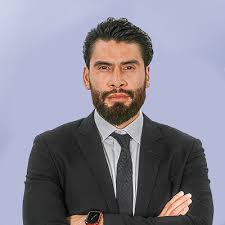
Dr. Ramiro Cabrera Carranco
Ramiro Cabrera Carranco, M.D.,
Doctor Cabrera – Endometriosis Specialist, Gynecologist, and Laparoscopic Surgeon.
Summary: Doctor Cabrera, is a compassionate endometriosis specialist and gynecologic surgeon based in Tijuana, Baja California. Patients seeking expert care in dr Cabrera Mexico turn to him for his advanced training in laparoscopic excision surgery and deep commitment to personalized treatment. Dr Cabrera OBGYN approaches endometriosis through the lens of the mesodermal origin theory—understanding it as a condition rooted in fetal development. This unique perspective informs the holistic, long-term care that defines Ramiro Cabrera endometriosis treatment, making him a trusted choice for those seeking real answers.
Doctor Cabrera combines surgical excellence with supportive therapies, including pelvic floor physiotherapy, an anti-inflammatory lifestyle, and supplements. Dr Cabrera OBGYN only recommends hormonal treatment when necessary, prioritizing conservative yet effective care. Patients experiencing persistent or complex pain are thoughtfully evaluated, often with referrals to neuropelviology. With a growing reputation across borders, Cabrera Mexico remains a leading destination for Ramiro Cabrera endometriosis expertise and whole-person healing.
City: Tijuana, Baja California, Mexico
Philosophy: Our approach to the treatment of endometriosis is based on the mesodermal origin theory, which suggests that individuals are born with endometriotic-like cells due to embryological misdifferentiation of the mesoderm. This theory posits that endometriosis is not solely a retrograde menstruation phenomenon but rather a condition that originates during fetal development, where misplaced Müllerian or mesothelial cells retain their potential to differentiate into endometrial-like tissue later in life.
What type of surgery do you perform for endometriosis: Excision
Medication: Hormonal treatment, primarily progestins, only when necessary; anti-inflammatory diet; pelvic floor physiotherapy; anti-
Approach to Persistent Pain: If the symptoms indicate neurological alterations, evaluation by neuropelviology or pain management treatment is recommended.
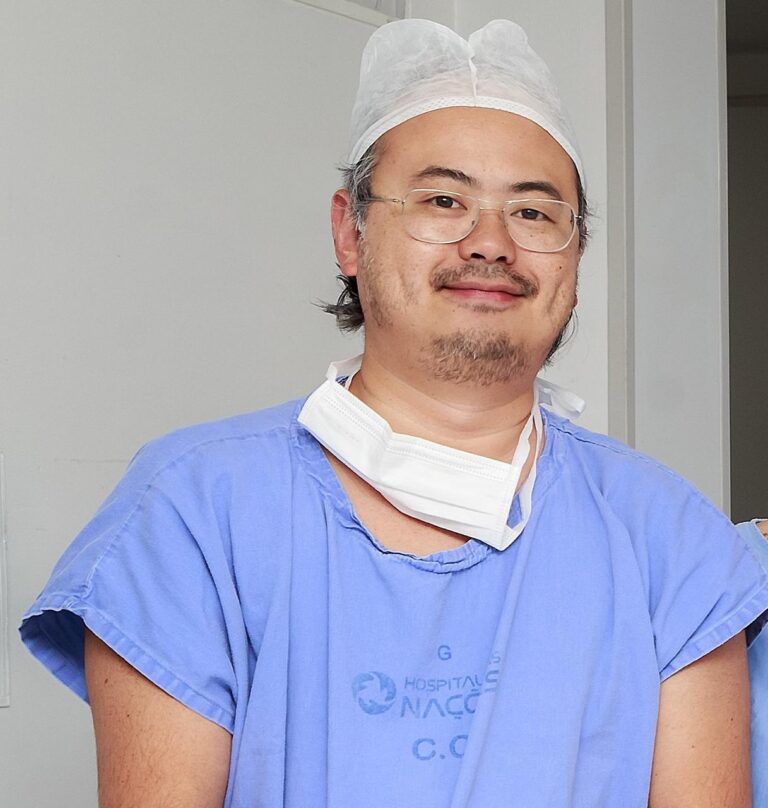
Dr. William Kondo
William Kondo M.D.
William Kondo M.D.- Endometriosis Specialist, Gynecologist, and Laparoscopic Surgeon.
Summary: Dr William Kondo M.D. is a trusted endometriosis specialist and urogynecologist based in Tijuana, Baja California, Mexico, with more than 30 years of experience helping patients find relief through advanced endometriosis treatment. He is known for his compassionate approach and deep understanding of how complex and life-disrupting this condition can be.
Dr Kondo sees endometriosis as a multifactorial disease influenced by genetics, hormones, and immune function. His treatment plans are tailored to each patient, often combining hormonal therapy with lifestyle support. For those dealing with ongoing pain after surgery, he integrates physical therapy, pain management, and holistic options like nutrition and acupuncture.
As a VideoVetted surgeon on iCareBetter, Dr Kondo is especially skilled in excision surgery for complex cases, including pelvic, bowel, bladder, and urinary endometriosis.
City: Tijuana, Baja California, Mexico
Philosophy: Endometriosis is a multifactorial disease. Hereditary predisposition (immune dysfunction apoptosis suppression), genetics, and epigenetics associated with hormones, menstruation, ovulation, dioxines, oxidative stress and inflammation are important factors that contribute to the pathophysiology and pathogenesis of endometriosis.
Medication: Usually I use combined oral contraceptives and progestins for the treatment of most women with endometriosis not desiring pregnancy. In some specific cases, we may use GnRH analogues or gestrinone, especially for those women who are not responsive to conventional treatment.
Approach to Persistent Pain: For persistent pain after surgery, if the surgery was complete we try to start clinical treatment for those women not desiring pregnancy (oral contraceptives or progestins in order to try do induce amenorrhea and ovulation suppression). In those cases of persistent pain, it is very important to have physical therapy to treat myofascial pain, and also some other treatments may play an important role (pain medications, physical activity, acupuncture, nutrition, etc).
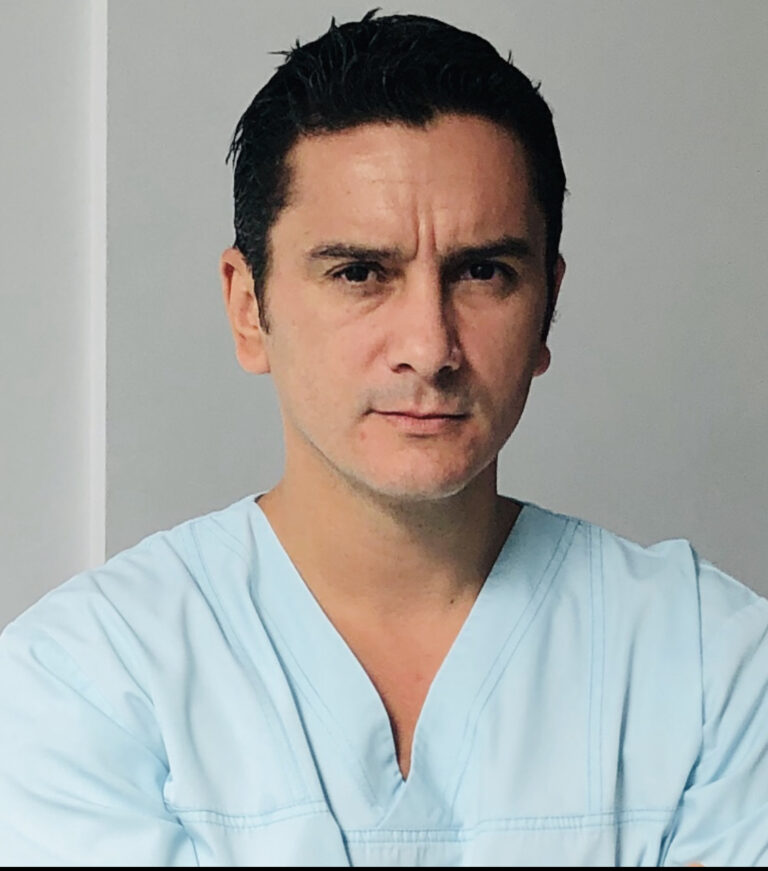
Dr. Gabriel Mitroi
Gabriel Mitroi, M.D.,
Gabriel Mitroi MD – Endometriosis Specialist, Obstetrics & Gynecology,
Summary: Gabriel Mitroi Dr, M.D., is a leading endometriosis specialist based in Bucharest, Romania, known for his advanced care in obstetrics and gynecology. Patients seeking compassionate, evidence-based treatment frequently turn to Gabriel Mitroi Dr Bucharest for his commitment to excision surgery and personalized care. With a firm belief in the genetic origins of endometriosis, Dr. Gabriel Mitroi offers long-term solutions designed to improve patients’ quality of life. For those looking to begin their healing journey, Dr Gabriel Mitroi contact details are often requested by both local and international patients seeking specialized expertise.
In addition to excision surgery, Gabriel Mitroi Dr supports a comprehensive pain management approach that includes birth control pills, NSAIDs, and the Mirena coil—particularly helpful for patients with adenomyosis. He collaborates closely with expert radiologists to evaluate Deep Infiltrating Endometriosis using advanced MRI techniques, ensuring each surgery is precisely planned and tailored to the patient’s condition.
Postoperative care is a cornerstone of Gabriel Mitroi Dr Bucharest practice. He remains actively involved with each patient’s recovery, monitoring symptoms and providing support through referrals for pain therapy and ongoing clinical evaluation. With a strong reputation built on trust, surgical skill, and patient-centered care, Dr Gabriel Mitroi contact is sought after by individuals across Romania and beyond, looking for real relief from endometriosis symptoms.
City: București, Romania.
Philosophy: Scientific studies point towards a genetic origin. I think, for now, until a specific method of treatment is found, excision remains the only method that offers various benefits to the patients.
Medications: I prescribe birth control pills after surgery for a few months and before surgery if the patient is in too much pain and painkillers do not work. For adenomyosis, I prescribe the Coil.
Imaging: I have a radiologist in my team specialized in MRI for endometriosis. I use the MRI in cases with suspicion of extensive Deep Infiltrating Endometriosis to be able to plan my time better and to have all specialists on stand-by/assisting me and of course, to inform the patients about the stay in the hospital, possible complications and the complexity of the surgery (bowel, bladder, ureteral reimplantation, etc).
Approach to persistent symptoms: I maintain contact with all patients after surgery for as long as is needed, so in case of persisting pain, I reassess the potential sources of pain and make recommendations based on the type of pain and symptoms and I usually recommend a nonsteroidal anti-inflammatory drug or Mirena coil if the source of pain points towards adenomyosis. I also refer patients to pain therapy. Unfortunately, I am not aware of any pelvic floor therapists in my country.
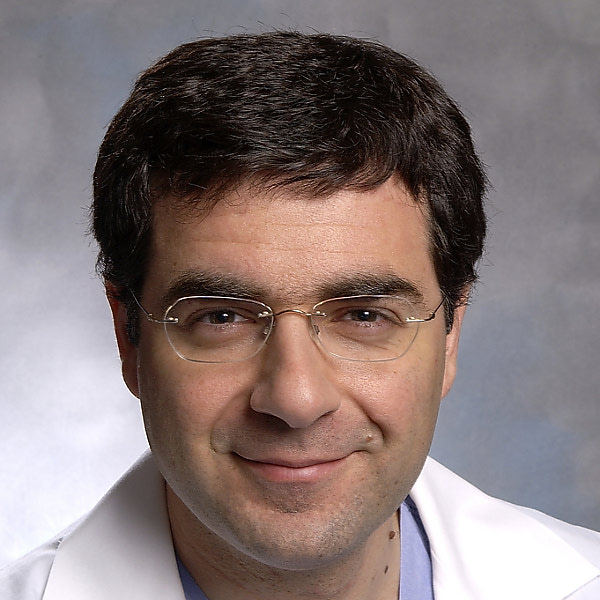
Dr. Antonio Rosario Gargiulo
Dr Antonio Gargiulo MD
Dr Antonio Gargiulo – Endometriosis Specialist, Gynecologist
Summary: Dr Antonio Gargiulo is a leading endometriosis specialist Boston patients trust for expert, compassionate care. As a highly respected gynecologic surgeon based in Boston, MA, Dr Antonio Gargiulo is known for his advanced techniques and individualized approach to treatment. Patients from across the U.S. seek Antonio Gargiulo MD endometriosis care for its innovation, depth, and dedication to whole-person health. Whether you’re searching for a highly experienced endometriosis specialist in Boston or have been referred to Doctor Gargiulo by another provider, his reputation for excellence and holistic, evidence-based care sets him apart.
While the exact causes of endometriosis are still under investigation, Dr Antonio Gargiulo supports the theory of a polypotential germ-cell origin. In clinical settings, Doctor Gargiulo often begins treatment with FDA-approved progestins and NSAIDs, reserving GnRHa primarily for patients with adenomyosis preparing for IVF. His thoughtful, personalized strategies help patients manage symptoms while minimizing unnecessary interventions.
When facing chronic or complex pelvic pain, Antonio Gargiulo MD endometriosis care expands well beyond standard gynecological evaluations. Doctor Gargiulo integrates comprehensive assessments across specialties, including urology, gastrointestinal, neuro-orthopedic, rheumatology, and mental health domains. His approach ensures coexisting or overlooked conditions are addressed, and that issues such as adhesions or hernias are not missed. Physical therapy and regular follow-ups are also central to his long-term treatment plans.
With unmatched expertise and a commitment to multidisciplinary, compassionate care, Dr Antonio Gargiulo remains a leading name in the field. As a trusted endometriosis specialist Boston patients rely on, Doctor Gargiulo continues to provide clarity, relief, and lasting solutions in the often misunderstood world of endometriosis.
City: Boston, MA, USA
Philosophy: Etiology is yet unclear. Polypotential germ-cell origin is a promising hypothesis.
Medication: My first line is FDA-approved progestins and NSAIDs. I use GnRHa exclusively for adenomyosis patients in the setting of IVF.
Approach to Persistent Pain: Expanding diagnostic approach (uro, GI, neuro/ortho, rheumatology, psyche). Expanding physical therapy approach. Clinical reevaluation for possible residual disease or iatrogenic disease (hernia, adhesions). Pain service.
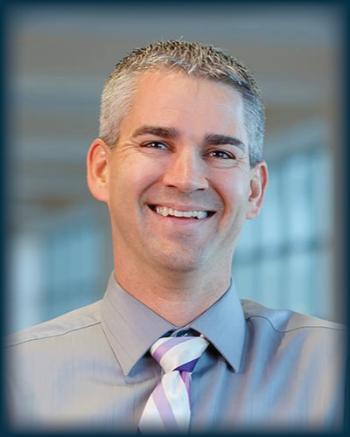
Dr. Jeff Arrington
Jeff Arrington MD, FACOG, ACGE Endometriosis Specialist
Summary: Dr Jeffrey Arrington, MD, FACOG, ACGE is a renowned endometriosis specialist in Riverton, Utah, recognized for his advanced surgical expertise and patient-first approach. Often referred to as Dr Jeff Arrington, he is sought after by patients across the region searching for a trusted expert like Jeffrey Arrington MD. As one of the leading gynecologic surgeons in the area, Dr Arrington Utah is known for combining cutting-edge techniques with compassionate, individualized care.
A firm believer in the Mullerianosis theory, which suggests that endometriosis develops from embryologic tissue, Dr. Jeff Arrington offers a wide range of treatment options tailored to each patient’s condition. These include hormonal therapies such as OCPs, POPs, and LNG-IUDs, as well as advanced laparoscopic excision surgery. Patients working with Dr Arrington Utah appreciate his clear communication and commitment to empowering them through every step of the treatment process.
For those struggling with ongoing pain after surgery, Jeffrey Arrington MD takes a comprehensive, multidisciplinary approach. This can include physical therapy, targeted medications, or second-look surgery when necessary. He also collaborates with other specialists for concerns like nerve impingement or neuro-compromise, ensuring that patients receive thorough, whole-person care.
City: Riverton, Utah, USA.
Philosophy: Mullerianosis. This doesn’t explain all the presentations, but I believe is the most dominant one with the highest degree of evidence.
Medication: OCP, POPs, LNG-IUD. I typically only use these if the patient chooses palliation. I do present all options with the appropriate explanation of the goal and risks of therapy. The patient is then allowed to choose the most appropriate management for her.
Approach to Persistent Pain: It depends on the symptoms and the other potential pain generators discovered in the pre-op work up. Some patients benefit from PT, some from simple hormones, and some from compounded muscle relaxers and inflammatory mediators. When appropriate I perform a second look with liberal biopsies of anything suspicious. If there is residual endo, I want to find it. I have also been looking into help with neurogastroenterology for some of the more difficult patients after endo is confirmed absent. I am also cognizant if potential nerve impingement and neuro-compromise and use appropriate referrals or personal surgical management for these.

